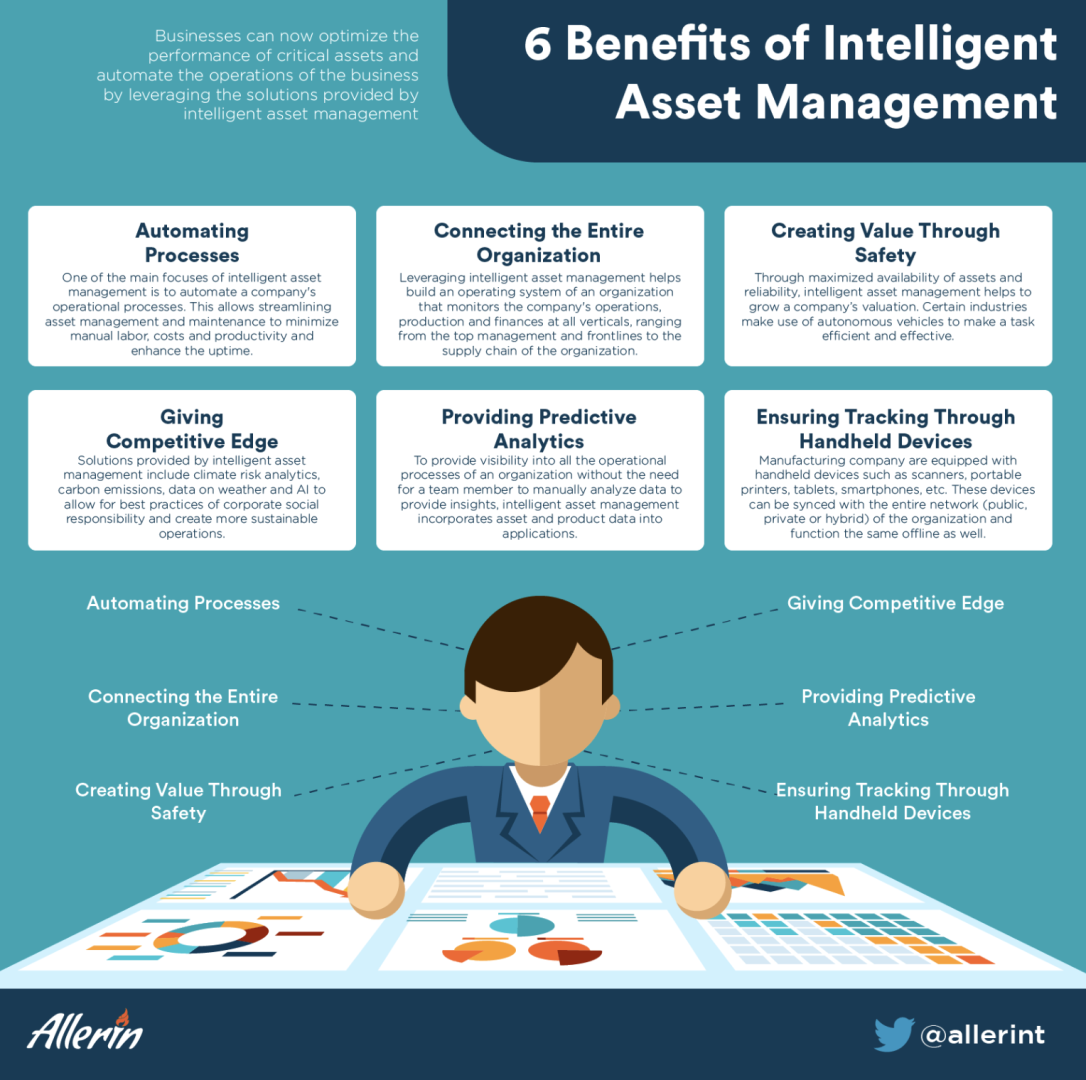Comments
- No comments found

Businesses can now optimize the performance of critical assets and automate operations by leveraging intelligent asset management solutions.
There is a massive amount of data surrounding the process of asset management. Even though this data is extremely valuable, it can be of no use if it isn't analyzed and interpreted correctly. Businesses face challenges in integrating data into multiple assets, platforms and devices, and also, the process to make it usable is slow and labor-intensive. These complexities, therefore, cause almost two-thirds of the data to remain idle and unused. The end result leads to inferior performance of a company's operations and issues in its reliability due to the defects caused by downtime.
To combat problems of manufacturing disruptions which lead to high costs in repairs and the increasing demand of customers keeping in tune with sustainability, intelligent asset management is the solution. Intelligent asset management refers to the cloud-based collaborative products that allow asset operators as well as manufacturers to plan, monitor and control services and maintenance strategies of products and assets by providing analytics reports.
Employing IAM to make use of the vast amount of data in the asset management process has various benefits, such as:

One of the main focuses of intelligent asset management is to automate a company's operational processes. This allows streamlining asset management and maintenance to minimize manual labor, costs and productivity and enhance the uptime. Certain industries, such as building and space management, deploy integrated solutions for their workplace, which make use of IoT, AI and data to design a safe and flexible workspace for their employees. It helps to drive efficiency in operations.
Leveraging intelligent asset management helps build an operating system of an organization that monitors the company's operations, production and finances at all verticals, ranging from the top management and frontlines to the supply chain of the organization. Industries such as oil and gas need to constantly meet the changing regulatory and economic environment and, therefore, implement measures that examine, handle and maintain the assets and products, while taking the necessary precautions to keep its employees safe. This is when deploying the solutions of intelligent asset management helps to monitor all the touchpoints and create efficient strategies.
Through maximized availability of assets and reliability, intelligent asset management helps to grow a company's valuation. Certain industries make use of autonomous vehicles to make a task efficient and effective. These equipment can be monitored remotely, even across the globe, to help check whether the deployed assets are running smoothly. Another benefit of intelligent assets is that they can help mitigate the risks that come with working in hazardous environments, like in the mining industry. It can check for floods, collapse toxic elements in the atmosphere, prevent fires, etc.
Solutions provided by intelligent asset management include climate risk analytics, carbon emissions, data on weather and AI to allow for best practices of corporate social responsibility and create more sustainable operations. It also lets companies derive insightful conclusions from this data by utilizing lesser resources in gathering this complex data. The application of this data will help companies curate sustainable strategic decisions and give them an edge over their competitors, as the consumers will see the image of the brand as sustainable.
To provide visibility into all the operational processes of an organization without the need for a team member to manually analyze data to provide insights, intelligent asset management incorporates asset and product data into applications. This enables predictive analytics for maintenance, remote asset and product monitoring, and visual inspection. The need for predictive maintenance arises in industries such as automotive, where it can change their process from a reactive based (taking maintenance action after the location of defects) to a proactive maintenance. Automobile manufacturers can detect any defects or anomalies, measure the equipment's health, and fix any damage before they occur and reduce any costly expenses.
Generally, all floor personnel in a manufacturing company are equipped with handheld devices such as scanners, portable printers, tablets, smartphones, etc. These devices can be synced with the entire network (public, private or hybrid) of the organization and function the same offline as well. This allows all the processes and activities on the manufacturing floor to be tracked in real time and also lets managers or supervisors keep track of such activities. This creates an efficient production process as any discrepancies can be located in time, leading to time and cost savings.
Valid for all technological advancements, the scope of intelligent assets in an organization can be as extensive as they can afford and implement. The range of implementing them can be as high as integrating predictive maintenance to mitigate any defects from the assets or as small as temperature reading to ensure the safety of employees in a hazardous environment. Utilizing the power of data and digitalization to increase the reliability of assets and products will allow for reduced risk and enhanced profitability. Organizations can also ensure sustainability as the resources will be utilized less. However, the use of resources will be maximized further by providing detailed and insightful analytics from the vast amount of data.
Naveen is the Founder and CEO of Allerin, a software solutions provider that delivers innovative and agile solutions that enable to automate, inspire and impress. He is a seasoned professional with more than 20 years of experience, with extensive experience in customizing open source products for cost optimizations of large scale IT deployment. He is currently working on Internet of Things solutions with Big Data Analytics. Naveen completed his programming qualifications in various Indian institutes.
Leave your comments
Post comment as a guest